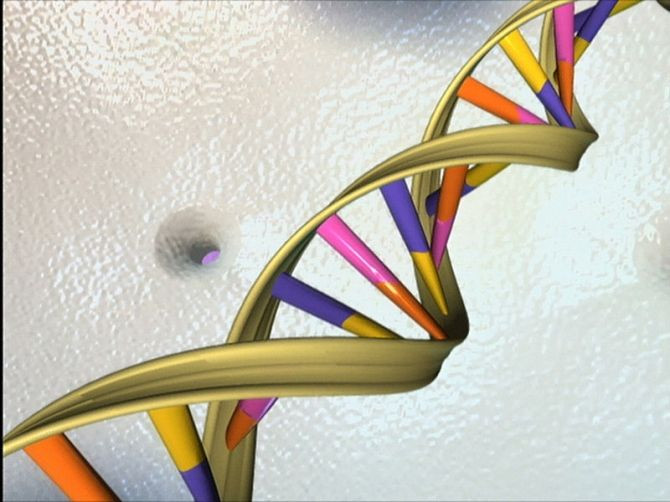Research Suggests That Humans Are Becoming More Stupid

A researcher has postulated what your ornery uncle has been grumbling for years: humans are getting dumber. Amazingly, YouTube and reality television are not completely to blame.
Dr. Gerald Crabtree from Stanford University writes in the journal Trends in Genetics that humans have been steadily losing intelligence for thousands of years. "The development of our intellectual abilities and the optimization of thousands of intelligence genes probably occurred in relatively non-verbal, dispersed groups of peoples before our ancestors emerged from Africa," Crabtree said in a statement.
In the early period of human civilization, people lived and died by their ability to organize things spatially in their minds, tasks necessary when it came to constructing a shelter. We can thank our ancestors for that ability because nearly anyone can mow a lawn, though that deceptively simple task actually takes a lot of brainpower.
Then, with the advent of agriculture and cities, that ability became less necessary. Because humans were increasingly reliant on one another, natural selection made it less necessary for humans to weed out harmful mutations.
"A hunter-gatherer who did not correctly conceive a solution to providing food or shelter probably died, along with his/her progeny, whereas a modern Wall Street executive that made a similar conceptual mistake would receive a substantial bonus and be a more attractive mate. Clearly, extreme selection is a thing of the past, "Crabtree and his colleagues write.
Over the course of 3,000 years or 120 generations, Crabtree has calculated that, on average, each person has two mutations that work against their intelligence, which is eroding our intellectual and emotional capabilities.
That theory may seem counterintuitive. After all, the Flynn Effect says that, every generation, average IQ increases. However, Crabtree attributes that effect to better prenatal care and nutrition and reduced exposure to harmful chemicals, like lead and mercury.
Not everyone agrees with Crabtree's findings. One researcher points out that a genius like Stephen Hawking would not have existed hundreds or thousands of years ago.
If Crabtree's hypothesis is true though, all is not lost. Humans have between 2,000 to 5,000 genes that dictate intelligence, so two mutations is not the end of the world. In addition, future technologies will likely emerge that will target the mutations and correct the problem. "At that time [in the future], we may be able to magically correct any mutation that has occurred in all cells of any organism at any developmental stage," Crabtree says. "Thus, the brutish process of natural selection will be unnecessary."
Published by Medicaldaily.com



























